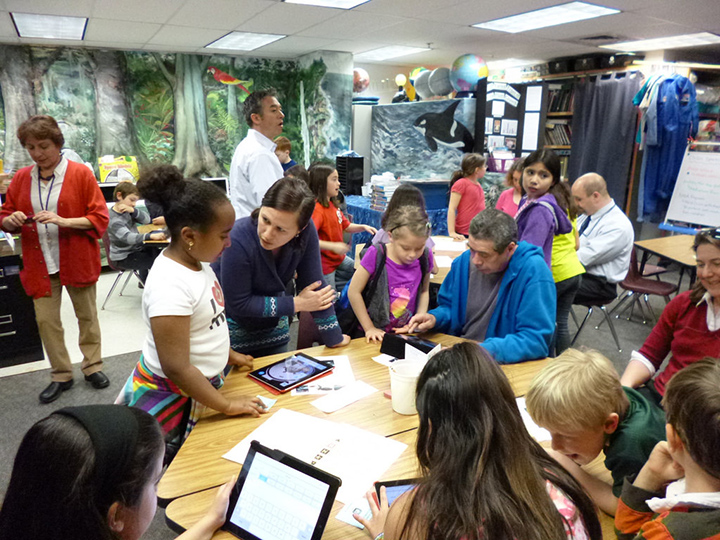Students at St. Paul Catholic School are working to cure cancer while also building character through the Leukemia and Lymphoma Society’s Pennies for Patients program.
According to The Weirton Daily Times:
Pennies for Patients is a three-week program for elementary and middle schools where students collect change and raise funds online while learning about service and philanthropy. Thanks to Olive Garden, Student Series’ national partner, LLS has designed a series of lesson plans for teachers to use in the classroom in response to the growing trend of making serving learning and character education part of the curriculum. The lesson plans integrate the theme of LLS’s Pennies for Patients programs into all academic areas.
“By participating, not only will kids learn about making an impact, but about leadership, teamwork, philanthropy, and what ‘doing good’ for others can mean,” said LLS’s Western Pennsylvania and West Virginia Chapter Executive Director Tina Thompson. “It’s a program that is truly meaningful because kids learn that their efforts really make a difference. As children move through their years at school, they can grow with the Student Series.”
St. Paul Catholic is among thousands of schools across the United States participating in the LLS program, which focuses on helping students set and reach goals and design programs that boost community involvement in the fight against leukemia, lymphoma, Hodgkin’s disease, and myeloma.
“Since it began in 1993, Student Series has helped LLS invest almost $1 billion in research to advance breakthrough cancer treatments that are saving lives today, and improving the quality of life for patients and their families,” according to the news site.
This year, elementary students at the Weirton Catholic school raised $2,006.93 for cancer research.
But the money is only one benefit of the program.
“Character reflects the affirmation of our commitments to a larger community, the embrace of an ideal that attracts us, draws us, animates us, inspires us,” James Davison Hunter wrote in The Death of Character.
The qualities of leadership and philanthropy that the students of St. Paul Catholic School are demonstrating will only grow as the students’ commitment to helping others grows.
The Student Series program is one of several programs through LLS aimed at developing good character, leadership skills, and philanthropy. Others include Collect for Cures for high school students and a Students of the Year program.
The 2017–18 Student Series campaign includes a K-5 STEM curriculum aligned with Common Core learning standards that offers teachers hands-on experiential activities and other lessons on key skills.
The Jubilee Centre for Character and Virtues also offers lessons for students to think about their life’s purpose and goals, and help guide students to a fulfilling life that puts selfless service to others above pursuits of wealth, status, and power.
In one lesson, students are tasked with imagining their lives 70 or 80 years into the future, and to reflect on the things that motivated them by considering Aristotle’s vision of good character centered on courage, fairness, generosity, and other important virtues.


